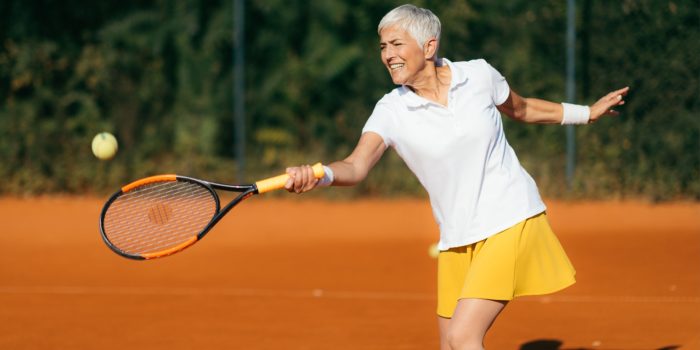
Anti-ageing games – use it or lose it!
April 11th, 2025Can playing games help you live a longer and healthier life? Yes, they can! So, open up your games cupboard, get out your crossword book and lay your cards on the table.
As you age, stimulating the mind is essential – use it or lose it!
Cognitive decline can begin in our 20s or 30s, and by the time we reach our 40s and 50s, we often forget what we have gone into a room for, where we have parked our car and those all-important passwords.
With age and life experiences, our memory becomes less reliable. Multi-tasking is not as easy as it used to be, and the mind isn’t as sharp as it was.
According to the experts, it is time to borrow your children’s or grandchildren’s video games because electronic game playing can slow cognitive decline.
Scientists at the Manchester Museum of Science and the Western University in Canada say playing games affects the way people’s brains work. A study of 1000 people from around the world revealed that those who played video games had better memory, attention and reasoning skills compared to those who didn’t. The participants had to do a series of special brain tests and answer questions about their lifestyle as part of the study.
Professor Adrian Owen, one of the scientists from Western University in Canada, said that electronic games are engaging, strategic and may enhance visual attention, processing speed, and problem-solving abilities through intense repetition and practice.
Games are like little workouts for the brain, teaching it new and different ways to do things
Ageing can become depressing, but a game of bingo, badminton or bowls can be a mood lifter. The adrenaline rush whilst you play and the buzz when you win can boost your mood even if it does come with a few twinges, aches and pains afterwards.
Playing games not only slows cognitive decline it decreases the risk of dementia, builds confidence, challenges the brain, and keeps the mind active and stimulated. Games are like little workouts for the brain, teaching it new and different ways to do things. Games can be creative, competitive or a reason to laugh until tears are trickling down your face and your stomach hurts.
The ageing brain needs to be stimulated, and game-playing is just the ticket
Game playing can be a very sociable experience. It can be a time to make new friends, improve friendships or do things with the family. Being part of a club or group can be excellent for social interaction and communication. Participating in brain-challenging tasks can even get you on the TV or winning money.
Whether it is pen to paper, moving an object around a board, tapping electronic devices or hitting a ball – playing games improves your mental and physical health.
Every success or problem solved releases dopamine in the brain and enhances mood. It can be the reason that you get to spend time with those near and dear, a game of Bridge with your besties or a word puzzle app on your phone.
Make the time to play to keep you on the ball and your wits about you
Make the time to switch on your favourite TV quiz show, fire up the laptop and limit your grandchildren’s time on their electronic games because it’s your turn. Even playing a game of strip poker can help slow cognitive decline, but it might not be the best game choice if the grandchildren are around.
If you don’t want to lose your marbles, keep playing games.
Sharpen your logic, use analytic thinking and rack your brains for answers to word games, puzzles and calculations, such as:
- Crosswords, Sudoku, word search and puzzles
These games are brain teasers that increase cognitive powers. Word and number games sharpen the brain through the act of solving. The brain has to revisit memories for answers, seek definitions, and hold and manipulate information. Word games develop new connections in the brain and can really get you thinking
- Board games and jigsaws
Board games require attention, focus, strategic thinking and planning. They enhance visual and spatial reasoning. They can be competitive, fun, frustrating, hilarious and satisfying. When things come together, it can be very rewarding – unless there’s a piece missing!
- Electronic games
Electronic games require focus, attention, and quick processing and reaction times. Sometimes, they include complex tasks with rapid decision-making, improving memory and making new memories. They can take multi-tasking to another level with speed, accuracy, creative thinking and lots of excitement.
Physical game playing can be intense, vigorous or leisurely. Enjoying sports and physical games can build stamina and strength and improve balance, flexibility and other skill sets. Not only does game playing challenge the brain, but it can also reduce frailty and weakness and improve mobility, quick reaction and mental speed.
Playing with balls can be very beneficial. Try your hand at:
- Lawn bowls
Watching someone playing lawn bowls might not look very physical, but it does involve muscular work and strategic movement
- Table tennis
Table tennis is an excellent hand-eye coordination game, raising the pulse rate and sharpening reaction time
- Tennis
Tennis is a dynamic sport that elevates the heart rate with lots of stop/start movements and strategic play
- Snooker or pool
Not a vigorous game, but walking around the table, bending and reaching, and mental engagement are beneficial
- Playing catch
Throwing and catching a ball improves hand-eye coordination, balance and postural control.
Aim for a win at:
- Badminton
A cardiovascular game that improves coordination, reflexes, mental agility and physical sharpness
- Darts
The physical action of playing darts requires precision, concentration, good balance and self-control
- Croquet
It’s a game that requires concentration, focus, and good balance. It is good for hand-eye coordination and strategic play.
Take your pick! Keep your mind alive and your body moving to help slow cognitive decline.
Challenge yourself and see how far you can go.
To help enhance cognitive performance we recommend our product Hydergine (HyPro). The natural product improves and regulates the level of blood and oxygen in the brain.
References
- https://www.healthycell.com/blogs/articles/top-tips-anti-aging-games-to-keep-you-young?srsltid=AfmBOoranc5uAj2tY_YyOYhGcfytejWvntGRqpp7l81v418c5UPncmQp
- https://evidence.nejm.org/doi/10.1056/EVIDoa2200121
- https://www.health.harvard.edu/blog/have-you-done-your-crossword-puzzle-today-202211292857
- https://www.health.harvard.edu/blog/have-you-done-your-crossword-puzzle-today-202211292857







